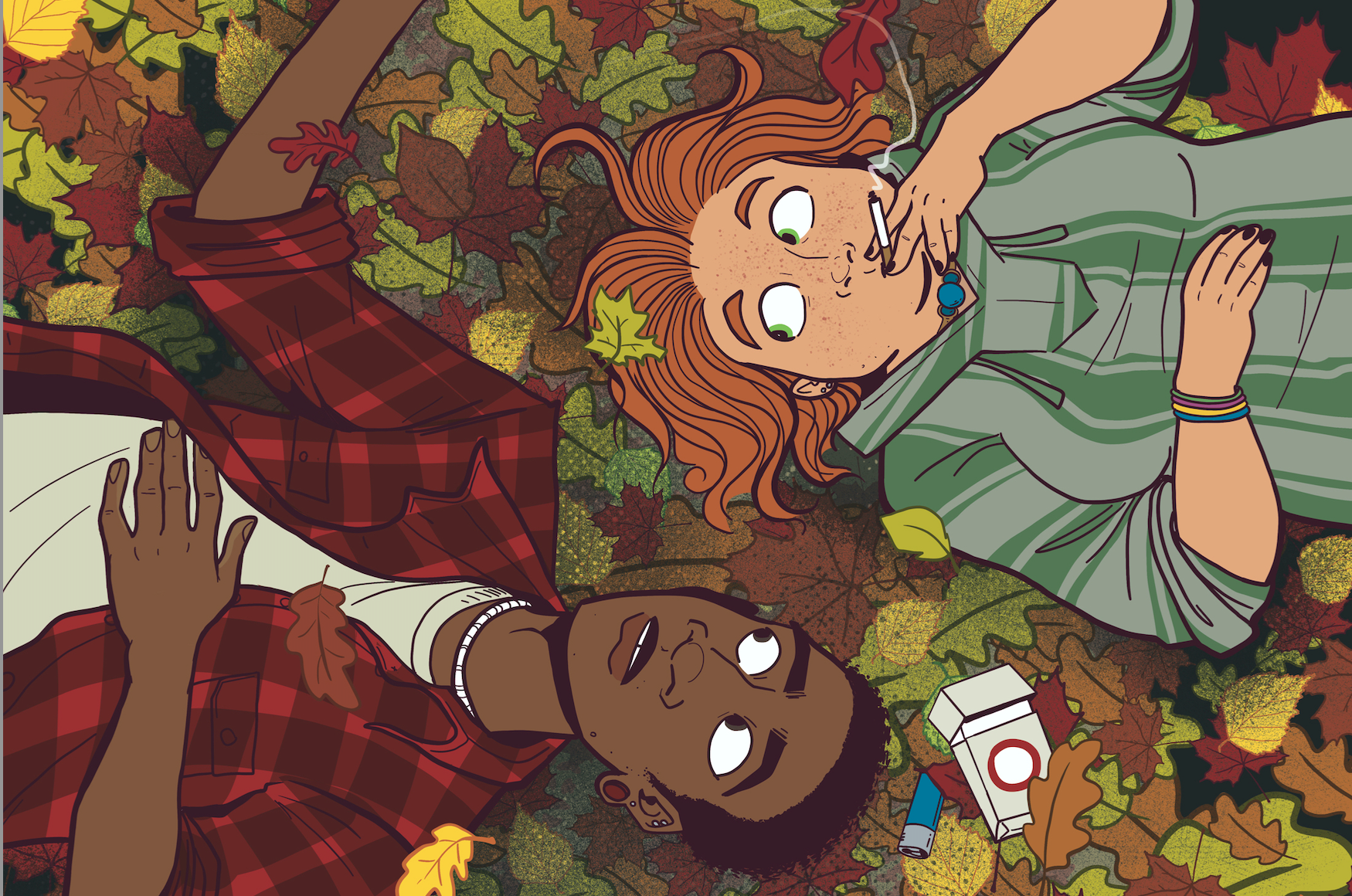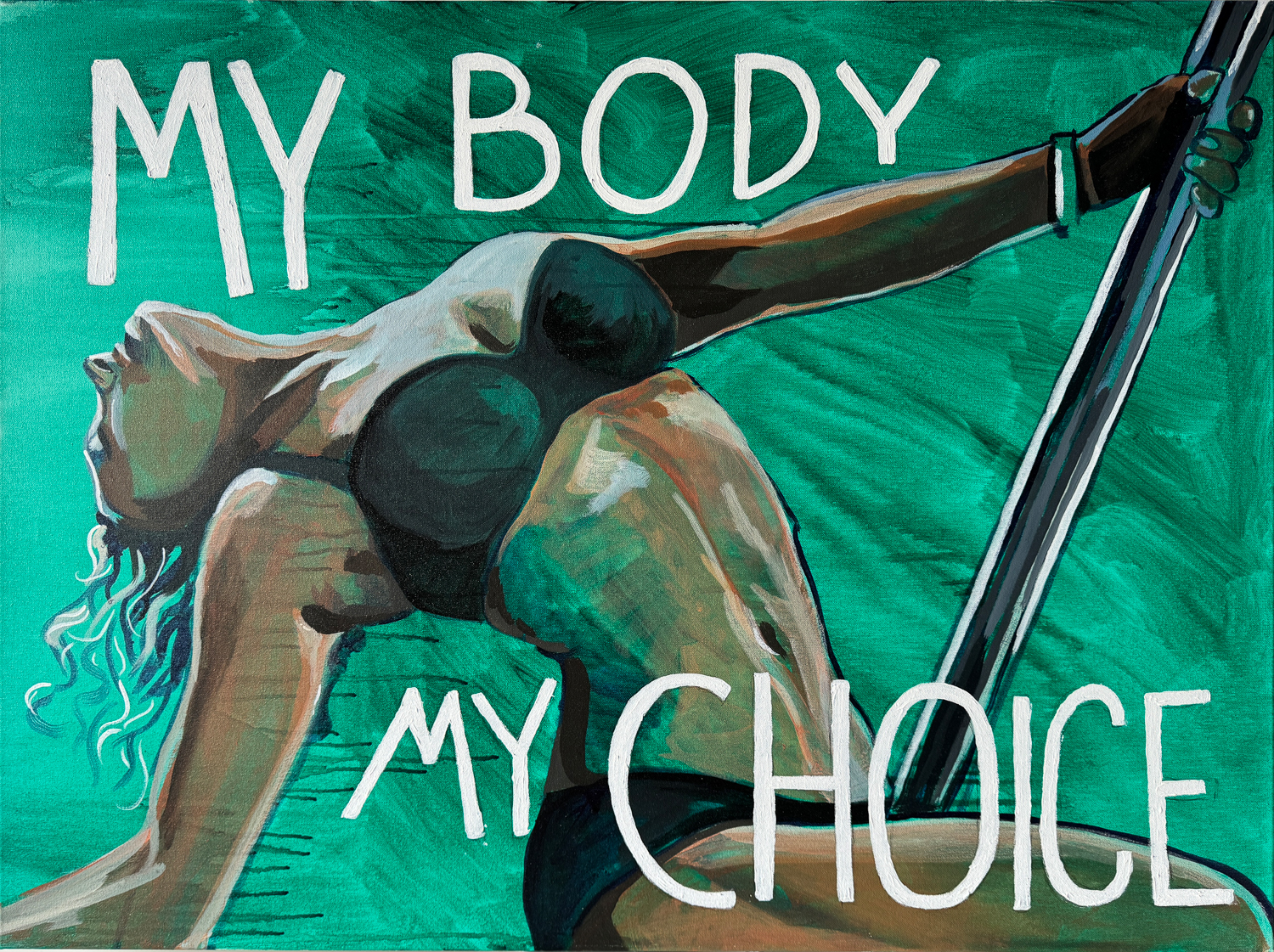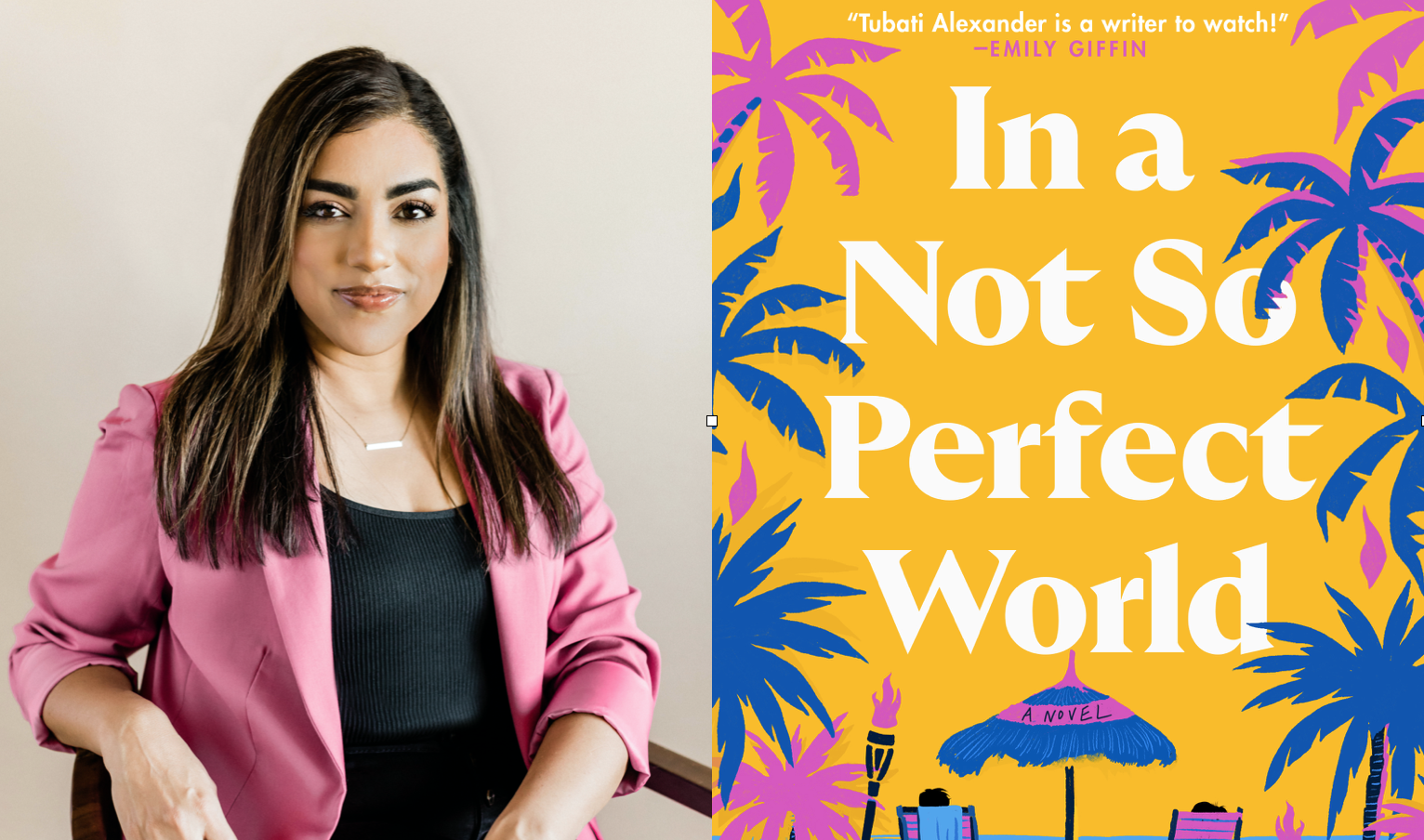
How do you find joy when faced with a terminal diagnosis? To answer this question, look no further than the life of debut author Ann Bancroft, who, at age 71 has experienced the kind of journey that would have audiences on the edge of their seats if it were a major Hollywood movie (her next big move, perhaps?!).
In her new novel ‘Almost Family’ (out May 28 through She Writes Press), Ann tackles the theme of searching for joy while dealing with a terminal diagnosis with sharp humor and profound compassion, which she found from drawing upon her own IRL experience.
As a two-time breast cancer survivor, the former San Francisco Chronicle and the Associated Press journalist shares in an interview with us below how her own health journey profoundly informed this very new stage of her writing career which was a major departure from the regimented world of journalism and daily news.
In her novel, the main character Liz Millanova has stage four cancer, a grown daughter who doesn’t speak to her, and obsessive memories of a relationship that tore her marriage apart. She thinks of herself as someone who’d rather die than sit through a support group, but now that she actually is going to die, she figures she might as well give it a go.
At a hospital-sponsored group, Liz hits it off with two other patients. Dave, a gay Vietnam vet, Rhonda, a devout, nice woman, and snarky Liz decide to ditch the group and meet on their own. They call themselves The Oakland Mets, and their goal is to enjoy life while they can. In the odd intimacy they form, Liz learns to open up and get close. The trio joined forces to have a good time – but what they wind up doing is helping one another come to grips with dying and resolve the unfinished business in their lives.
We truly love learning more about the lives of women who are refusing to stick to conventions, and reinvent themselves at any age. Inspired by Ann’s author debut at 71, enticed by the central story in ‘Almost Family’, and curious to know more about how her own life experience has impacted her outlook on ambition, relationships and death, we had the opportunity to speak with her in a wide-ranging interview, which you can read below.

Where did the idea for “Almost Family” come from?
The initial idea came from my own cancer experience. My first bout of breast cancer was at age 55. It was early stage, but aggressive, so they threw the works at it. While that was a rough year, I had great support from family, friends and colleagues at work. I often wondered, “What if?” What if this had occurred at the lowest point in my life and I did not have any of that support? I read in a cancer chatroom about women’s partners who left them during treatment.
How devastating that would be. I also feared my cancer would come back, metastasized, in a couple of years, and wondered what that would be like. At the time, my secret password was “alive@65!” because I hoped to live to that age. So the germ of Almost Family came from imagining an isolated character faced with the worst case, instead of my own relatively fortunate scenario.
You’ve worked in news and journalism for many years, eventually pivoting to become a writer. What was the catalyst for this?
As a journalist, I’d spent years writing other people’s stories, I worked hard to accurately report news and feature stories. Imaginary scenarios were, obviously, forbidden. I was a speechwriter for a couple of years, attempting to capture the voice of my boss in his speeches. When I retired early, at age 59 (fearing I only had a couple years ahead of me!) I took some short story classes, wanting to see if I could create stories in my own voice, and from my own imagination. It was a challenge, but truly satisfying to discover that creative space. I didn’t start out with the goal of writing a novel; the story evolved. I kept studying the craft of writing fiction, and over time I had the bones of this story.
Becoming a debut author at 71 is so inspiring to learn about! In a world that often brushes aside women after a certain age, what does it mean to be doing something new and creative in your 70’s?
I don’t think we ever stop growing or being creative, and I think the 60s and 70s are great ages to pursue new things. Work and childrearing obligations are in most cases behind you, and it is possible to pursue your passion in a slower, more focused way. Unlike in early adulthood, in which many big things in life are experienced for the first time, in your 70s you bring to whatever you do many years of experience and, hopefully, the wisdom that accrues through those years. You’ve already survived heartbreaks and gone on to experience the unexpexted.
There is great freedom, too, in knowing that it’s not the end of the world if your creation or passion doesn’t result in fame, fortune or even making a living, (I recognize how fortunate I am to have a pension and retirement savings, freeing me from the need to work a job, or multiple jobs, in my 70s). I’ve felt little risk in stretching creative boundaries, plunging in to a new activity, opening up to new people and experiences, or learning new things just for the pleasure of it. I think both cancer and my age have made me more fearless.
How have your own experiences with breast cancer informed the creation of your characters and story in ‘Almost Family’?
Meeting other women in cancer treatment and then becoming a cancer mentor, I experienced an odd and special intimacy with women I would never have otherwise met. I shared dark humor with a fellow patient who hoped to recover from treatment before her wedding; witnessed a sobbing woman who was so burnt by radiation she didn’t think she could take one more zap, joked with the radiation techs as they strapped my half-naked body to a table and then cranked up “Boogie Wonderland” on the intercom.
My cancer experience was filled with moments both touching and darkly humorous. As a mentor, I went to doctor’s appointments, wig shopping, chemo infusion sessions and coffee dates — all with women who were very different but who I grew to love in this unique way. Because I’d already traveled the road they were on, and came out in good shape, being an example lifted.
So there were all of these anecdotes in my mind, some of which showed up, altered, in Almost Family, but I think the experience of mentoring other patients was behind the creation of that weird support group at Nordstrom and then the deep bonds formed between Liz, Rhonda and Dave. I wanted to show the profound closeness that can occur in circumstances that transcend all the usual markers of “things in common.”
You don’t shy away from discussions about end of life and dealing with death in your book. Why was it important for you to weave this into the story?
Two reasons. Since my 20s, I’d experienced more than the usual number of deaths of people close to me. Cancer took both of my parents, my best friend, another very close friend, my first boss, a woman on my small staff at work, three other close colleagues, two old boyfriends, and even my occasional housecleaner, also a friend. A favorite brother-in-law died of AIDS at age 33. A stepmother-in-law who I adored took her own life when I was 24. Of course many more friends and acquaintances have died since I turned 60. So I’m familiar with loss, grief, and what dying is like, up close.
I’m also aware that this culture doesn’t deal well with death and dying — we often pretend it’s not something you will not actually ever have to deal with. We are bombarded with images and stories of violent deaths, and films showing dying as melodrama, but neither is the norm. I think facing our mortality makes us better people, and a culture that realistically deals with death is healthier than one that avoids it.
I wanted to show that people continue to live and grow all the way until they actually die, and that being close to someone dying is a sacred and profound experience not to be feared. I hoped to make readers a bit more comfortable thinking about and talking about cancer and death, by writing this story in which friendship and relationships are more important than the characters’ diseases.
Can you explain more about the idea of “found family” if readers are unfamiliar with the term? And how did it help your main characters bond together despite their struggles?
I think “intentional family” may be closer to the mark. That is, my characters met in unusual circumstances and found that they shared one thing so profound it made them closer than they were even to some of their own family members. When they learn that they also shared the experience of addiction in their families, the bond is further strengthened. They become “a tribe within a tribe,” and are committed to sticking it out together.
Not at the exclusion of other friends or family, but in a uniquely special way. Like Liz and her friend Kate, who bonded as military brats, the three characters who bond over their cancer diagnoses and then their experiences of helplessness with addicted family members, know instantly that the others sharing their experiences “get it” in ways that most people do not.
You also use humor as a storytelling tool, which is refreshing and allows the reader to engage in a way that doesn’t feel overwhelming. Why do you think humor is such a powerful tool to help us understand big topics or serious matters?
I had lots of darkly funny thoughts while undergoing cancer treatment, and I know that humor helped me get through both of my cancer diagnoses and months of treatment, I hope humor helps readers stick with my characters even as they face difficult circumstances.
Humor is a great tension reliever, and a great connector. At times when we might want to flee because a situation is uncomfortable or loaded with other emotions, laughter can keep us present.
Life is often absurd, particularly when we’re trying to be very serious. We laugh at people who take themselves very, very seriously, and nobody wants to wade through a story that’s relentlessly bleak. Comedy is the flip side of tragedy, and it’s hard to encompass both, but life sometimes makes us experience both, and that’s what makes life so rich.
What are the similarities and differences between Liz Millanova’s story, and your own in real life?
Like Liz, I was raised in the Army and moved around a lot. I experienced that tribal sense of connection you see between Liz and her friend Kate, who had a similar background, Like Liz, I lived in Oakland for some years, and loved it for its diversity. I did experience a breakup at a particularly hard point in my life but that was well before cancer and my marriage, which has been good for 30 years.
I am prone to introversion, though less so as I get older, and have never been as isolated as Liz is at the beginning of the story. I have a son, not a daughter, and he’s delightful and open and our relationship is close.
While I’ve had breast cancer twice, I’ve not had metastatic cancer, thankfully. I certainly did not postpone treatment to spend time with a married boyfriend, as Liz does. I forgive her, as she’s just coming out of years of a codependent marriage and a terrible relationship with her daughter. I’ve got some experience, but not nearly as much or as Liz has, with loved ones suffering from alocholism, and I’ve seen it up close in friends’ lives.
What advice would you give to other women who feel the insecurity of their age, but still have unrealized dreams?
I’d say, go for it, whatever it is, and don’t give a second thought to what others might think about you doing it. This is your once-in-a-lifetime life! So go on and live it fully, What have you got to lose, and what is the worst case scenario? You can change your mind, too— no harm, no foul— but do begin, and see what happens if you persist.
Chances are, all the things you’re worried about either won’t happen or don’t matter as much as you believe they do. So pursue what you want to do purely for the satisfaction of doing it, and don’t worry about the outcome. You will have had the rich experience of stretching your boundaries and doing something you love.
What do you hope readers will love most about ‘Almost Family’?
The characters, because I love them. I hope the story will make them laugh, cry, and think about love, friendship, illness and dying in new and satisfying ways.
You can see more of Ann Bancroft’s work on her website, and connect with her on Facebook. Order a copy of ‘Almost Family’ on Indiebound, Barnes & Noble and Amazon.

















